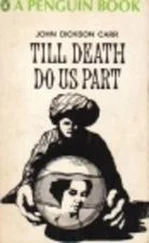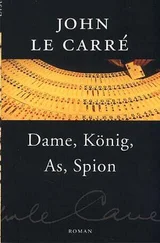“To determine whether I was right about the Cagliostro-trick, it further occurred to me, should be very simple. There is a scientific test, called the Gonzales test or the nitrate test, by which you can infallibly prove whether a given hand did or id not fire a given revolver.
“If Marion Hammond hadn't pulled that trigger, I could write Q.E.D. And if Harry Brooke did happen to be dead as they claimed, it looked as though the crime must have been committed by an evil spirit.
“I somewhat impudently announced this, to the annoyance of Dr. Garvice, who responded by slinging us all out of the bedroom. But there were some interesting repercussion immediately afterwards.
“My first move, of course, was to put Miss Fay Seton in a corner and make her admit all this. I asked Dr. Garvice, in the presence of 'Curtis,' whether he would be good enough to send Miss Seton up to see me. There followed, from 'Curtis,' an outburst of nerves which shocked even you.
“Suddenly he realized he was wasting time; the girl might be up here any minute. He must get away out of sight. He said he was going to his room to lie down, and—bang! I could have laughed, you know, if the whole thing hadn't been so grotesquely wicked and bitter. No sooner did 'Stephen Curtis' touch his bedroom door, than you shouted to him not to go in there, because Professor Rigaud—who also knew Harry Brooke—was asleep and mustn't be disturbed!
“No, by thunder! He mustn't be disturbed! “Do you wonder, again that 'Curtis' plunged down the back stairs as though the devil were after him?
“But I had little time to speculate about this, because Dr Garvice returned with some information which thoroughly scared me. Fay Seton had gone. The note she left, especially that line, 'A brief-case is so useful, isn't it?' let the cat out of the bag: or, more properly, the raincoat out of the brief-case.
“I knew what she was going to do. I had been a prize idiot for not realizing it the night before.
“When I had told Fay Seton that if Miss Hammond recovered this matter would be no concern of the police, that was where she had smiled in so terrifying a way and murmured, 'Won't it?' Fay Seton was sick and tired and ready to blow up.
“At her room in town she had the evidence which could still send Harry Brooke to the guillotine. She was damned well going to get it, return with it, throw it in our faces, and call for an arrest.
“And so—look out!
“The alleged Stephen Curtis was really desperate. If he used his head, he wasn't dished even yet. When he crept up there in the dark, and played the Cagliostro trick, Marion hadn't seen him and hadn't heard any voice except a whisper. She would never have thought (and didn't, when we talked to her later) that the attacker was her own fiance. Nobody else had seen him; he had slipped into the house by the back door, up the back staircase, into the bedroom, and down again to get away before you others reached the bedroom after the shot.
“But Fay Seton, returning alone to a solitary forest place, with hanging evidence?
“That was why, my dear Hammond, I sent you after her in such haste and instructed you to stay with her. Afterwards things went all wrong.”
“Ha!” said Professor Rigaud, snorting and rapping on the table to call for attention.
“This jolly farceur,” continued Rigaud, “dashes into my bedroom where I am asleep, hauls me from bed, hauls me to the window, and says, 'Look!' I look out, and I see two persons leaving the house. 'That's Mr. Hammond,' says he; 'but quick, quick, quick, who is the other man?' 'My God,' I say, 'either I am dreaming or it is Harry Brooke.' And he plunges away for the telephone.”
Dr. Fell grunted.
“What I hadn't remembered,” Dr. Fell explained, “is that Hammond had read the woman's note aloud, in ringing tones which carried to a half-crazed man at the foot of the back stairs. And,” added Dr. Fell, turning to Miles, “he went along with you in the car to the station. Didn't he?”
“Yes! But he didn't get aboard the train.”
“Oh, yes, he did,” said Dr. Fell. “By the simple process of jumping in after you did. You never noticed him, never thought of him, because you were searching so feverishly for a woman . When you searched that train, any man, if he kept a newspaper in front of his face as so many were doing, would never get a second glance.
“You failed o find Fay Seton either, for which you must blame you own overwrought state of mind. There was nothing in the least mysterious about it. She was in a state of mind even less receptive to crowds than yours; she did what many people do nowadays if they are good-looking women and can get away with it; she travelled in the guard's van.
“That is a foolish episode leading to a last tragic episode.
“Fay went to London in a blank hysteria of rage and despair. She was going to end all this. She was going to tell the truth about everything. But then, when Superintendent Hadley was actually in her room urging her to speak . . .”
“Yes?” prompted Barbara.
“She still found she couldn't do it,” said Dr. Fell.
“You mean she was still in love with Harry Brooke?”
“Oh, no,” said Dr. Fell. “That was all past and gone. That had been only a momentary idea of respectability. No: it was a part, now, of the same evil destiny that kept hounding her whatever she did. You see, Harry Brooke who became metamorphosed into Stephen Curtis . . .”
Professor Rigaud waved his hands.
“But his,” he interrupted, “is another thing I do not understand. How did that change come about? When and how did Harry Brooke become Stephen Curtis?”
“Sir,” replied Dr. Fell, “above all things my spirit is wearied by the routine card-indexing necessary to check up on a person's papers. Since you have formally identified the man as Harry Brooke, I leave the rest to Hadley. But I believe”--he looked at Miles—“you haven't known 'Curtis' for a very long time?”
“No; only for a couple of years.”
“And according to your sister, he was invalided out of the Forces comparatively early in the war?”
“Yes. In the summer of nineteen-forty.”
“My own guess,” said Dr. Fell, “is that Harry Brooke in France at the outbreak of the war couldn't endure the threat constantly hanging over him. It wore his temperament to constantly hanging over him. It wore his temperament to shreds. He couldn't stand the idea of Fay Seton with evidence that would . . . well, think of the cold morning at dawn and the blade of the guillotine looming in front of you.
“So he decided to do what many other men have done before him: to cut free, and make a new life for himself. After all, the Germans were over-running France; in his opinion, for good; his father's money, his father's goods were lost to him in any case. In my opinion, there was a real Stephen Curtis who died in the retreat of Dunkirk. And Harry Brooke, in the French Army, was attached to the British as interpreter. In the chaos of that time, I think he assumed the clothes and papers and identity of the real Stephen Curtis.
“IN England he built up this identity. He was six years older, a dozen years older as we count time in war, than the boy who thought he wanted to be a painter. He had a reasonably solid position. He was comfortably engaged to a girl who had come into money, and who managed him as in his heart he always wanted to be managed . . .”
“It's odd you should say that,” Miles muttered. “Marion commented on exactly the same thing.”
“This was the position when Fay appeared to wreck him. The poor fellow didn't really want to kill her, you know.” Dr. Fell blinked at Miles. “Do you remember what he asked you, in the tea-room at Waterloo, after he'd got over the first nauseating shock?”
Читать дальше










